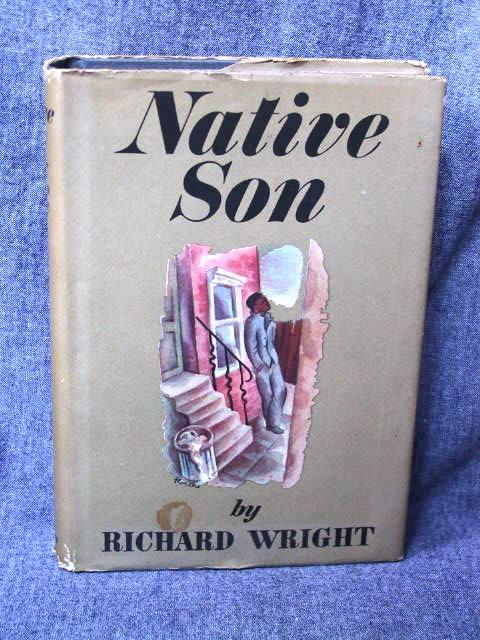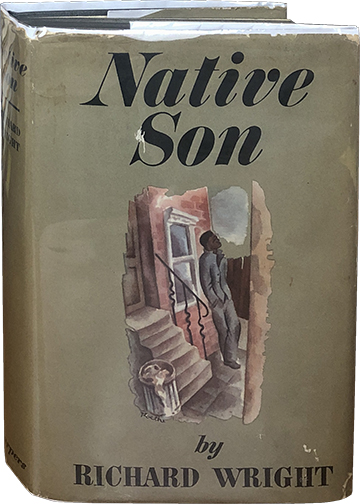


What Howe meant was that after Native Son it was no longer possible to pretend…that the history of racial oppression was a legacy from which we could emerge without suffering an enduring penalty. Depicting the murder of a white woman by a black man, Wright’s novel exposed important questions about enduring and systemic oppression of African Americans “’The day Native Son appeared, American culture was changed forever,’ Irving Howe once wrote, and the remark has been quoted many times. Housed in a green custom clamshell case.Ī difficult and important novel, Native Son draws on literary antecedents like Crime & Punishment to explore race and racism in America. Jacket is first issue priced at $2.50 and without blurbs on the spine. First issue binding in dark blue cloth, with a date of 1940 on the title page, "First Edition" stated on the copyright page and a publisher's code of "A-P" just below the edition statement. Moreover, I show that Wright’s novel has caused considerable controversy among critics and intellectuals, including the African American writer James Baldwin, who dismissed Native Son as an example of American protest fiction, and (black) feminist scholars, criticizing Wright for his sexualized and misogynistic depiction of female characters.New York: Harper & Brothers Publishers, 1940. In this essay, I argue that Native Son not only explores the transformative power of violence in the life of the black antihero, Bigger Thomas, but also draws attention to the destructive nature of the protagonist’s violent actions. Highly influenced by (urban) naturalism, Wright focuses on the misery of black ghetto life and reflects on the role and legitimacy of violence in the struggle for individual recognition.

Set in Chicago during the Great Depression, Richard Wright’s influential and controversial novel Native Son (1940) highlights the devastating effects of racial segregation, oppression, and poverty on African Americans.


 0 kommentar(er)
0 kommentar(er)
